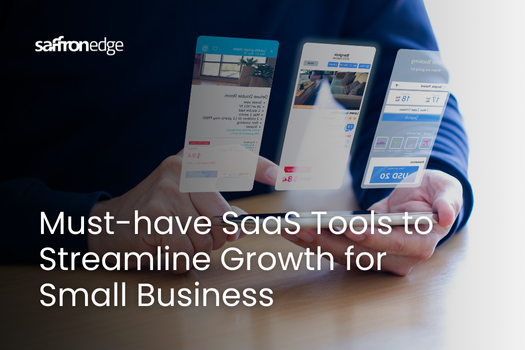Contents
- 1. Implement a Robust CRM System
- 2. Utilize Lead Scoring Systems
- 3. Leverage Email Marketing Automation
- 4. Deploy Automated Follow-Up Sequences
- 5. Use AI-Powered Chatbots for Lead Engagement
- 6. Automate Sales Proposals and Contracts
- 7. Integrate Social Media Sales Automation
- 8. Automate Sales Calls and Voicemail Drops
- 9. Optimize Document Management with E-Signature Solutions
- 10. Automate Sales Reporting and Analytics
- 11. Implement AI-Based Sales Forecasting
- Conclusion
Have you ever wondered how much time your sales team spends on manual tasks instead of closing deals? How many potential leads slip through the cracks due to inefficient follow-ups? If these questions resonate with you, it's time to explore sales process automation.
Recent statistics show that sales automation has an impact. Sales departments report a 15% increase in productivity through automation.
These figures underscore the transformative potential of sales automation in streamlining operations and enhancing overall business performance.
This blog explores 11 practical strategies to automate your sales process, providing actionable insights to transform your sales operations.
1. Implement a Robust CRM System
A Customer Relationship Management (CRM) system is an essential tool for modern sales teams and is the backbone of sales automation.
It provides a centralized platform where businesses can store and manage customer information, track interactions, and generate valuable insights to improve sales efficiency.
Key Benefits of a CRM System:
-
Centralized Data Management: All customer-related information—contact details, previous interactions, preferences, and transaction history—is stored in one place. This eliminates data silos and ensures that sales teams have immediate access to relevant information.
-
Automated Data Entry: Instead of manually inputting customer data, a CRM system automatically records and updates lead details, interactions, and follow-ups, reducing administrative workload and human errors.
-
Streamlined Lead Management: CRMs help categorize leads based on their stage in the sales funnel, enabling sales representatives to focus on high-potential prospects and nurture them effectively.
-
Enhanced Follow-Up Automation: The system can schedule automated follow-ups via email, phone calls, or chatbots, ensuring timely engagement with prospects and preventing missed opportunities.
-
Real-Time Sales Pipeline Tracking: Sales managers can monitor the progress of deals in the pipeline, identify bottlenecks, and make data-driven decisions to improve sales performance.
Popular CRM Platforms:
Several CRM solutions offer robust automation features that streamline the sales process:
-
HubSpot CRM – Known for its user-friendly interface and powerful automation tools, HubSpot helps businesses automate lead tracking, email workflows, and reporting.
-
Salesforce – A widely used CRM that offers advanced customization, AI-driven insights, and integrations with various third-party tools.
-
Zoho CRM – A cost-effective solution with automation capabilities for lead management, follow-ups, and customer interactions.
2. Utilize Lead Scoring Systems
Lead scoring is a systematic approach to evaluating and ranking potential customers based on their likelihood to convert.
Businesses can prioritize high-quality prospects and optimize their sales efforts by assigning numerical values to leads according to their engagement, behavior, and demographic attributes.
Benefits of Lead Scoring:
-
Improved Sales Efficiency: Sales teams can focus on leads with the highest potential, reducing wasted time on low-interest prospects.
-
Personalized Outreach: By understanding a lead’s level of interest, businesses can tailor communication and sales pitches accordingly.
-
Higher Conversion Rates: Prioritizing qualified leads results in faster deal closures and better conversion rates.
-
Real-Time Insights: Automated systems continuously update lead scores, allowing sales teams to make data-driven decisions instantly.
Popular Lead Scoring Tools:
-
HubSpot Lead Scoring – Uses engagement tracking and demographic data to score leads automatically.
-
Salesforce Einstein Lead Scoring – AI-powered lead scoring based on historical data and predictive analytics.
-
Marketo Lead Scoring – Assigns dynamic scores based on prospect behavior and demographic factors.
3. Leverage Email Marketing Automation
Email marketing automation allows businesses to nurture leads effectively by sending targeted and personalized messages at the right time.
Instead of manually crafting and scheduling emails, automated systems handle this process, ensuring continuous engagement with potential customers.
Benefits of Email Automation:
-
Consistent Communication: Ensures timely engagement without requiring manual intervention.
-
Increased Efficiency: Frees up sales teams by automating repetitive tasks.
-
Higher Engagement Rates: Personalized emails improve open and click-through rates.
-
Data-Driven Optimization: Provides analytics on email performance, helping businesses refine their strategies.
Popular Email Automation Tools:
-
Encharge – Specializes in behavior-based email automation for SaaS businesses.
-
Mailchimp – Offers user-friendly automation workflows for small to mid-sized businesses.
-
ActiveCampaign – Provides advanced automation capabilities, including CRM integration and lead nurturing.
4. Deploy Automated Follow-Up Sequences
Timely follow-ups are crucial in maintaining prospect engagement. Automated follow-up sequences ensure that no lead is neglected by sending pre-scheduled emails, SMS messages, or reminders based on user behavior.
How Automated Follow-Ups Work:
-
Triggered Follow-Ups: If a lead takes a specific action, such as downloading a whitepaper or requesting a demo, an automated follow-up is triggered to provide additional resources or schedule a call.
-
Multi-Channel Engagement: To maintain communication consistency, follow-ups can be executed through email, SMS, or automated voicemail drops.
-
Lead Nurturing Sequences: Prospects who haven’t responded receive a series of automated follow-ups to keep them engaged and gradually move them toward conversion.
By deploying automated follow-ups, businesses can reduce lead leakage, maintain consistent engagement, and improve sales conversion rates.
Missing Automation Means Missing Revenue & Broken Funnels
Every hour without automation is lost revenue and wasted time. Automate your sales process today and start converting leads while you sleep.
5. Use AI-Powered Chatbots for Lead Engagement
AI-powered chatbots engage with website visitors in real time, answering queries and capturing lead information.
These chatbots use artificial intelligence to respond instantly, qualify potential leads, and schedule sales calls. They function as virtual assistants that work 24/7, ensuring no prospect goes unnoticed.
Benefits of AI Chatbots:
-
Provide Instant Responses: AI chatbots eliminate wait times by instantly addressing customer queries, improving user experience and engagement.
-
Qualify Leads Automatically: These chatbots analyze user interactions and qualify leads based on predefined criteria, ensuring that only high-quality prospects reach your sales team.
-
Schedule Sales Calls Seamlessly: Many AI-powered chatbots can integrate with scheduling tools to book meetings or sales calls directly with representatives.
Popular AI Chatbot Tools:
-
Drift – AI-driven chatbot for conversational marketing and lead qualification.
-
Intercom – Helps businesses engage, qualify, and support customers in real-time.
-
Tidio – A customer service chatbot with automation features for sales and support.
6. Automate Sales Proposals and Contracts
Creating sales proposals and contracts manually can be time-consuming and prone to errors. Sales proposal automation tools simplify this process by generating professional, customized documents in a fraction of the time.
These tools also ensure consistency in contract terms and compliance with legal requirements.
Benefits of Proposal Automation:
-
Speeds Up the Contract Process: Reduces the time required to create, review, and send proposals, allowing sales teams to close deals faster.
-
Reduces Errors: Automation eliminates manual mistakes, ensuring accuracy in pricing, terms, and conditions.
-
Enhances Customer Experience: Customers promptly receive well-structured, professional documents, improving their overall buying experience.
Popular Proposal Automation Tools:
-
PandaDoc – Enables businesses to create, send, and track proposals efficiently.
-
Proposify – Helps sales teams generate interactive proposals with automation features.
-
DocuSign – Provides secure and legally binding e-signature solutions for fast contract approvals.
7. Integrate Social Media Sales Automation
Social media automation tools help sales teams identify prospects, schedule posts, and engage with potential customers. These tools streamline outreach, ensuring businesses can reach their audience quickly with minimal manual effort.
Key Features:
-
Automated LinkedIn Outreach: Sales teams can use automation to send connection requests, personalized messages, and follow-ups without manual intervention.
-
Scheduled Social Media Posts: Businesses can plan and automate content distribution across multiple platforms, ensuring consistent engagement.
-
AI-Powered Social Listening: Tools analyze conversations, trends, and customer sentiment to provide valuable insights for sales strategies.
Popular Social Sales Automation Tools:
-
Hootsuite – Helps businesses schedule posts, monitor engagement, and track sales interactions.
-
Sprout Social – Offers advanced analytics and automation for social media marketing.
-
LinkedIn Sales Navigator – A powerful tool for B2B sales teams to find and connect with prospects.
8. Automate Sales Calls and Voicemail Drops
Sales automation tools streamline calling processes by automating voicemail drops and call scheduling. Instead of manually leaving voicemails or calling each prospect individually, sales reps can use automation tools to leave pre-recorded messages instantly.
Benefits:
-
Reduces Time Spent on Repetitive Calls: Sales reps can focus on high-value prospects rather than spending time dialing and leaving voicemails manually.
-
Ensures Consistent Messaging: Automated voicemail drops ensure uniform, professional messages across all leads.
-
Increases Engagement Rates: Automated call scheduling and voicemail drops improve response rates and help nurture leads more effectively.
Popular Sales Call Automation Tools:
-
Kixie – A cloud-based sales engagement platform that offers AI-powered call automation, voicemail drops, and automatic call logging to improve efficiency.
-
RingCentral – A VoIP-based communication tool that provides automated call routing, voicemail transcription, and CRM integrations for streamlined sales processes.
-
Aircall – A cloud phone system designed for sales teams, featuring call queuing, real-time coaching, and integration with CRM and helpdesk platforms.
9. Optimize Document Management with E-Signature Solutions
Managing sales contracts and approvals manually can create bottlenecks, delaying deal closures.
E-signature solutions eliminate the need for physical paperwork, allowing prospects and clients to sign contracts digitally in seconds. This automation ensures a seamless, legally compliant, and efficient process.
Benefits of E-Signature Automation:
-
Faster Deal Closures: Reduces contract turnaround time by allowing instant digital approvals.
-
Enhanced Security: Ensures document authenticity with encryption, audit trails, and compliance with legal standards.
-
Seamless Integration: Syncs with CRMs, sales automation platforms, and cloud storage for effortless document tracking.
Popular E-Signature Tools:
-
DocuSign – A widely used digital signature solution that provides legally binding e-signatures, automated workflows, and seamless integrations with CRMs like Salesforce.
-
Adobe Sign – A trusted e-signature platform that enables secure, cloud-based contract approvals and real-time document status tracking.
-
SignNow – A cost-effective alternative that offers customizable signing workflows, team collaboration, and API integration for sales automation.
10. Automate Sales Reporting and Analytics
Tracking sales performance manually is not only time-consuming but also prone to errors. Sales automation tools streamline reporting by gathering real-time data, analyzing key performance indicators (KPIs), and generating actionable insights.
These tools allow sales teams to focus on strategy and decision-making rather than spending hours compiling reports.
Benefits of Sales Reporting Automation:
-
Real-Time Insights: Sales leaders can instantly monitor pipeline performance, revenue forecasts, and conversion rates.
-
Data-Driven Decision Making: AI-driven analytics help identify trends, predict future sales, and optimize sales strategies.
-
Time Efficiency: Automates data aggregation, eliminating the need for manual report compilation.
Popular Sales Reporting Tools:
-
Tableau – A powerful business intelligence tool that visualizes complex sales data through interactive dashboards and reports.
-
Google Data Studio – A free tool that integrates with Google Analytics, CRMs, and other platforms to generate customizable sales dashboards.
-
Zoho Analytics – A cloud-based analytics platform that provides in-depth sales tracking and performance reporting with AI-driven insights.
11. Implement AI-Based Sales Forecasting
Sales forecasting plays a critical role in business planning and decision-making. However, traditional forecasting methods rely on guesswork and historical data analysis, which may not always provide accurate insights.
AI-based sales forecasting automates this process by leveraging machine learning and predictive analytics to analyze historical trends, customer behaviors, and external market factors.
This allows businesses to make data-driven decisions, optimize resources, and anticipate revenue fluctuations.
Benefits of AI-Based Sales Forecasting:
-
Accurate Revenue Predictions: AI-driven models process vast amounts of data, identify patterns, and generate precise revenue forecasts, reducing the risk of financial miscalculations.
-
Improved Resource Allocation: By forecasting demand more accurately, businesses can optimize inventory management, staffing, and budget planning.
-
Proactive Sales Strategies: AI-powered insights help sales teams anticipate potential risks, identify new opportunities, and adjust their strategies to maximize success.
Popular AI-Based Sales Forecasting Tools:
-
Clari – Uses AI to track and analyze sales pipelines, helping businesses accurately predict deal closures and revenue outcomes.
-
Gong.io – Provides AI-driven sales insights by analyzing sales calls and interactions, helping teams refine their pitches and improve conversion rates.
-
Aviso – Leverages machine learning to generate predictive sales analytics, helping businesses make informed sales decisions and mitigate revenue risks.
Conclusion
Sales automation is no longer a luxury—it's necessary for businesses looking to scale efficiently, close deals faster, and improve customer engagement.
Implementing the right tools and strategies can streamline your sales process, reduce manual workload, and boost revenue growth.
Each automation strategy is crucial in optimizing your sales efforts, from CRM systems and AI-powered chatbots to automated follow-ups and sales forecasting.
If you want to leverage marketing and sales automation to drive better results, Saffron Edge can help. As a leading marketing automation service provider, we offer tailored solutions to streamline your sales processes, enhance lead management, and maximize your conversions.
Contact us today to learn more about our sales automation services!
Get The Marketing Automation Toolkit
Frequently Asked Questions
What is sales automation?
Sales automation is using technology to streamline repetitive sales tasks such as lead management, follow-ups, data entry, and reporting. It helps sales teams save time, reduce manual errors, and improve efficiency, allowing them to focus more on closing deals.
How does a CRM system improve sales automation?
A CRM system centralizes customer data, tracks interactions, and automates follow-ups and pipeline management tasks. It ensures sales teams have up-to-date information, leading to better customer engagement and higher conversion rates.
What are the key benefits of using AI in sales automation?
AI enhances sales automation by providing predictive analytics, lead scoring, personalized customer interactions, and chatbots for instant support. These capabilities help businesses improve decision-making, optimize sales strategies, and boost revenue.
Which sales tasks can be automated?
Everyday sales tasks that can be automated include email follow-ups, lead qualification, data entry, appointment scheduling, sales reporting, and forecasting. Automating these processes reduces workload and increases productivity.
How can Saffron Edge help with sales automation?
Saffron Edge offers customized sales and marketing automation solutions. We integrate tools like CRMs, AI-powered chatbots, and automated workflows to optimize your sales process. Contact us today to learn how we can help you streamline your sales operations!
Your competitors are already automating. Why aren’t you?
Maximize efficiency, close deals faster, and boost revenue with Saffron Edge’s expert sales automation solutions. Contact us today to streamline your sales process and drive business growth!
Related Blogs
We explore and publish the latest & most underrated content before it becomes a trend.

Subscribe to Saffron Edge Newsletter!

Get The Marketing Automation Toolkit










